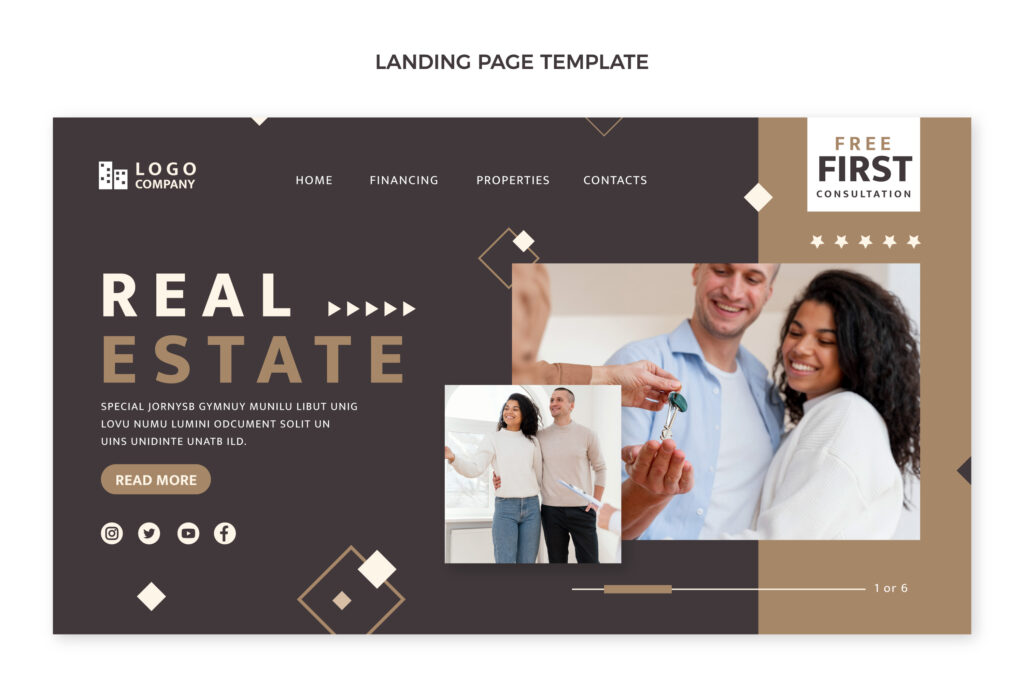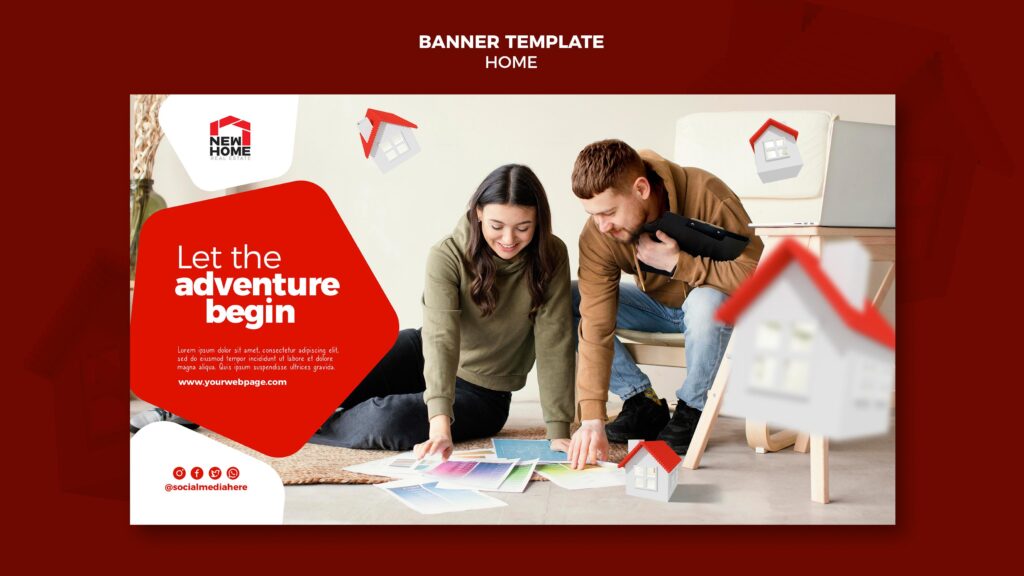A high-performing real estate website is more than just a digital brochure—it’s a lead-generating powerhouse that attracts, engages, and converts potential buyers.
With increasing competition in the property market, a mobile-friendly, SEO-optimized, and high-speed website is critical for success.
At Stratos Digital, we leverage 20+ years of expertise in digital marketing to help real estate brands create websites that deliver exceptional user experiences, strong lead generation, and high conversion rates.
In this blog, we explore the key strategies to build a high-converting real estate website, ensuring your brand stands out in a competitive market.
1. Mobile-First Website Design for Real Estate Businesses
Why Mobile Optimization Matters
Over 70% of real estate searches happen on mobile devices, making mobile-first design a necessity. Google prioritizes mobile-friendly websites, ensuring higher search rankings and user engagement.
Best Practices for Mobile-Optimized Real Estate Websites
✔ Responsive Design – Ensures seamless browsing across all devices.
✔ Fast Load Times – Optimized images and code for quick page rendering.
✔ Tap-Friendly Navigation – Large buttons and easy-to-click elements.
✔ Mobile-Friendly Property Filters – Simplified search options for users.
Example: A Gurgaon-based developer redesigned its website for mobile-first browsing, increasing lead conversions by 45% within three months.
2. The Importance of Speed Optimization & Core Web Vitals
How Page Speed Impacts Conversions
A website that takes longer than 3 seconds to load loses 50% of potential buyers. Google’s Core Web Vitals emphasize fast-loading pages for a better user experience and higher rankings.
Ways to Optimize Website Speed
🚀 Use a Lightweight Theme – Avoid unnecessary design elements that slow down load time.
🚀 Optimize Images – Compress large images to reduce load time.
🚀 Enable Caching – Stores data to reduce loading times for repeat visitors.
🚀 Use a CDN (Content Delivery Network) – Enhances website performance globally.
Example: A Mumbai-based real estate firm improved site speed by 35%, reducing bounce rates and increasing lead submissions by 30%.
3. Lead Generation Forms & CRM Integration for Property Websites
Why Lead Generation is Key for Real Estate Websites
A well-optimized lead generation system can turn visitors into buyers. Integrating CRM tools ensures effective lead tracking and follow-ups.
How to Design High-Converting Lead Forms
📩 Keep Forms Short – Request essential details only (Name, Contact, Property Interest).
📩 Auto-Fill Options – Speeds up form submission.
📩 Exit-Intent Popups – Capture leads before users leave the site.
📩 Chatbot-Assisted Forms – AI-driven chatbots to guide users through the form.
Example: A Noida real estate agency integrated HubSpot CRM, leading to a 50% improvement in lead response time.
4. Creating SEO-Friendly Property Listings & Landing Pages
Why SEO is Essential for Real Estate Websites
A strong SEO strategy ensures your listings rank on Google, bringing in high-intent traffic actively searching for properties.
Best Practices for SEO-Optimized Property Listings
🔍 Keyword-Rich Property Descriptions – Use location-specific terms (e.g., “Luxury apartments in Bangalore”).
🔍 Structured Data Markup – Helps Google understand listing details for better search visibility.
🔍 Internal Linking – Connect listings with related properties and blog content.
🔍 Geo-Targeted Content – Create pages optimized for different localities and micro-markets.
Example: A Delhi-based developer optimized its SEO content and landing pages, leading to a 40% increase in organic traffic within 6 months.
5. Using Chatbots & AI for a Better Real Estate Website Experience
How AI Chatbots Improve User Engagement
AI-powered chatbots help real estate websites provide instant responses, answer FAQs, and capture leads 24/7.
Key Benefits of Chatbots in Real Estate
🤖 24/7 Lead Qualification – Chatbots gather user intent before connecting them with sales teams.
🤖 Personalized Property Recommendations – AI-based chatbots suggest relevant listings based on user behavior.
🤖 Faster Customer Support – Reduces wait times for site visitors.
Example: A Bangalore-based real estate portal integrated AI-powered chatbots, resulting in a 3X increase in engagement and lead capture rates.
FAQs: Real Estate Website Design & Optimization
1. What are the key features of a great real estate website?
A high-converting real estate website should have mobile-first design, fast page speed, high-quality property listings, lead capture forms, and AI-powered chatbots for better engagement.
2. How can website speed impact real estate lead generation?
A slow website can increase bounce rates and lower lead conversion rates. Optimizing for fast loading speeds improves user experience and boosts search rankings.
3. What makes a high-converting real estate landing page?
An effective real estate landing page should include clear CTAs, high-quality images, engaging descriptions, lead forms, and social proof (testimonials, trust badges).
4. How do chatbots improve website engagement for real estate?
AI chatbots provide instant responses, personalized property suggestions, and seamless lead capture, increasing conversion rates and user satisfaction.
5. What are the best practices for designing a real estate website?
✔ Ensure mobile-first design
✔ Optimize website speed & Core Web Vitals
✔ Integrate SEO best practices for property listings
✔ Use AI chatbots for lead nurturing
✔ Implement high-converting landing pages & forms
Final Thoughts: Elevate Your Real Estate Website for Maximum Conversions
A well-designed real estate website is a powerful marketing tool, capable of attracting high-intent buyers, generating quality leads, and driving property sales. By implementing SEO-driven listings, AI-powered chatbots, and mobile-friendly designs, real estate brands can maximize their digital presence.
Want to transform your real estate website into a high-converting platform? Contact Stratos Digital today for expert solutions!



